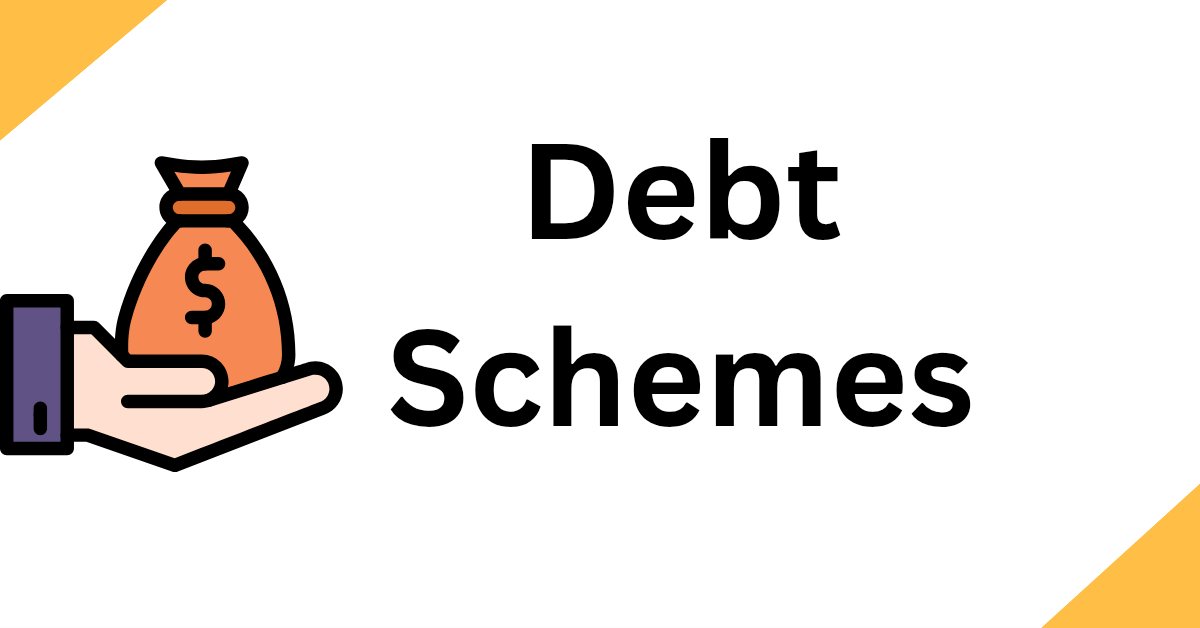• You can take the help of various debt schemes such as external commercial borrowing, venture capital, trade credit, and bill discounting for raising debt.
• External borrowing can be taken in the form of, bank loans, buyer-supplier credit, convertible/non-convertible debenture, and preference shares.
• Venture debt can be taken by anyone but, generally, it is used by early growth stage venture-backed companies.
• Bill discounting is also known as “factoring”.
• IFCI is a famous institution for factoring. IFCI has a separate department for bill discounting purposes.
What is debt fund with example
Many debt schemes help you in raising loans including external commercial borrowing, venture debt, trade credit, and bill discounting.
1: External commercial borrowing
ECB comes from outside India. It can be taken in the form of:
• Bank loan
• Buyer-supplier credit
• Convertible/non-convertible debenture
• Preference shares
So, when you need a bank loan, you can do external commercial borrowing from outside India.
• Lending institutions for ECB are:
• Foreign commercial banks
• Export credit agencies
• Any Indian company which is eligible can borrow funds through ECB.
• Now, borrowing is external so the money will come in other currencies such as the Dollar, Pound, Euro, etc., so the Reserve bank of India is also involved.
• Funds are raised through the Foreign exchange management act.
• Any Non-banking financial corporation (NBFC) can raise funds to $750 million.
• Any software development company can raise funds to $200 million.
• Any micro finance activities can raise funds to $750 crore.
• Any other business stipulated by RBI can raise $ 500 million.
• If someone borrows $20 million, the maturity period is a minimum of 5 years.
• If borrowing is less than $20 million, the average maturity period is a minimum of 3 years.
2: What are the benefits of ECB?
The following are the benefits of ECB:
1. For extension of existing capacity: You can use it for expanding the existing capacity, i.e, 1 factory to 2 factories.
2. For company acquisition: Also, you can use these funds to acquire any company.
3. For opening a new wing in an existing business: You can use it to opening a new wing in an existing business.
4. Long term finance: It is long term finance around 15-20 years for infrastructure companies. They get enough time to repay the loan because, in their projects, the amount is received gradually.
5. Cheaper rate funds: ECB provides funds at a cheaper rate.
So, ECB provides cheaper finance for a long duration.
Also, if your company is listed you can offer shares in return. This is known as “convertible debenture.”
So, you can say that “I borrowed Rs.1000 crores from you and I have already paid you interest. Now I can give you shares of my company in return for your loan.”
So, these are known as “convertible debentures” because your loan is converted into equity.
3: Venture debt
• Venture debt can be taken by anyone but, generally, it is used by early growth stage venture-backed companies.
• In companies where the investor is already present and the founder feels that he doesn’t want to give his equities, he can choose venture debt.
• Also, if he will take time to collect funds from the sale of shares, they approach venture debt.
• The interest rate is higher in the case of venture debt which is generally 12-18%.
• According to the general thumb rule, venture debt can be taken off 30% of the equity raised in the last round.
• For example, if your company has to raise Rs.10 crores through equity in the last round, you can get funds of Rs.3 crores in this round.
• It provides short and medium-term loans of 3-4 years.
• The biggest advantage is that even the companies that don’t have positive cash flow can also raise venture debt.
• If you visit the bank of standard NBFCs they will not give you a loan if your cash flow is negative.
• But, venture debt is players who are ready to take a little risk, they will give you a loan even if you don’t have collateral security or positive cash flow.
• Their stake is less diluted and you don’t have to give any equity to venture debt.
Many companies are dealing in the venture such as:
• Alteria capital
• InnoVen capital
• Trifecta capital
Also, many standard NBFCs deal with venture capital.
4: Trade credit
• This is the oldest way of raising debts.
• For example, on a supplier’s bill of Rs.100, you can pay Rs.20 in advance while Rs.60 you can pay after 60 days of receiving the product.
• So, you have taken trade credit where you can pay money after some time and you don’t need to pay interest also.
• But yes, if you have paid all the money immediately, he might have given you some cash discount that would reduce your costs.
• But if you feel that you can sell products at a higher price, there is no problem is paying a little higher cost because you will have the availability of cash flows.
• All companies are eligible who acts as a supplier and this is a type of Business to business loan.
• It will be shown in your books as accounts payables.
• There is no maximum and minimum value in trade credit.
• Generally, the credit period is for 30,60,90 days.
• The best part of this scheme is that you get time to pay money, you have cash flow in your hand for other things such as business expansion.
• If you have such a supplier for a lifetime, it will help you because you don’t have to take a loan rather you can pay the amount to your supplier s per your convenience.
• It will help in the growth of your business.
5: Bills discounting
For example:
• You are a supplier and sold goods for Rs.100 to Cadbury company.
• You raised a bill for Rs.100 for 60 days that was accepted by the company.
• Now, if you want immediate money, you can discount this bill with HDFC and take the amount.
• Everyone is getting benefits because the end customer has got credit from the business, the business got money at the time and the bank got a chance to earn interest for 60 days.
All businesses are eligible institutions and banks provide money against a bill. When the amount of the bill will be received bank will receive the money so the bank is also safe.
Now, if there is a default in this loan means the client denies paying the amount, the supplier has to pay the amount.
Bill discounting is also known as “factoring”. IFCI is a famous institution for factoring.
IFCI has a separate department for bill discounting purposes.
So, you can connect with IFCI and if you have outstanding bills of some good clients, and you are expecting money, you can discount your bills and rotate your business with this available cash flow.
All these 4 methods might not be immediately beneficial for you but you should understand about ECB on the RBI website as it is very beneficial for long-term growth.
Note Down:
• Use debt raising method according to your business type
• Check the RBI website to know about ECB

